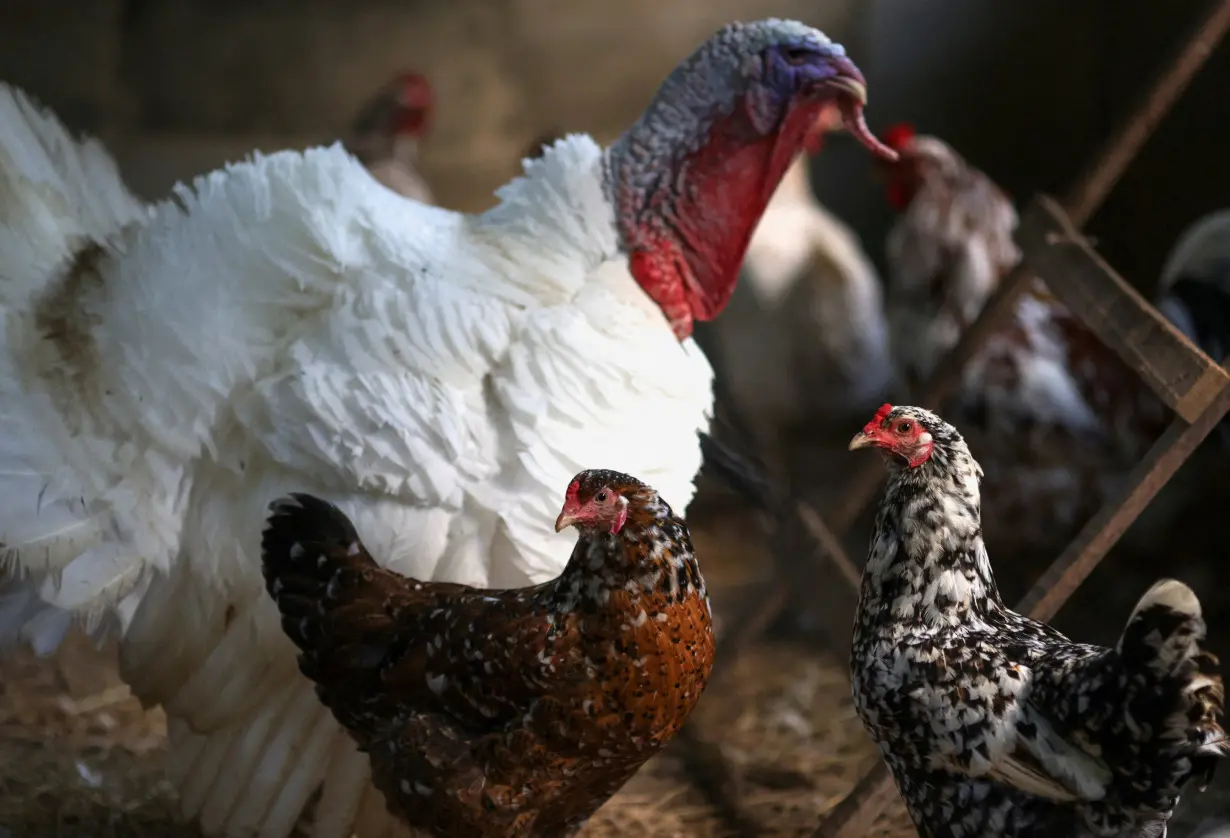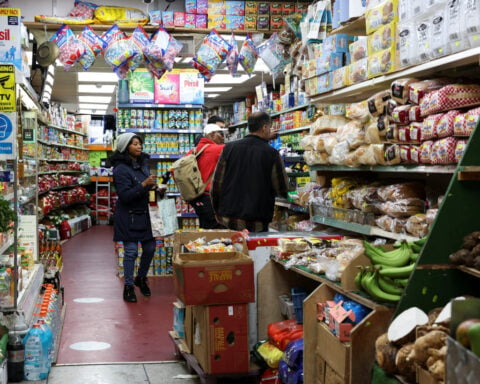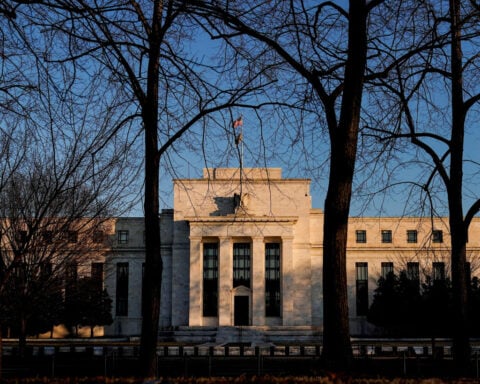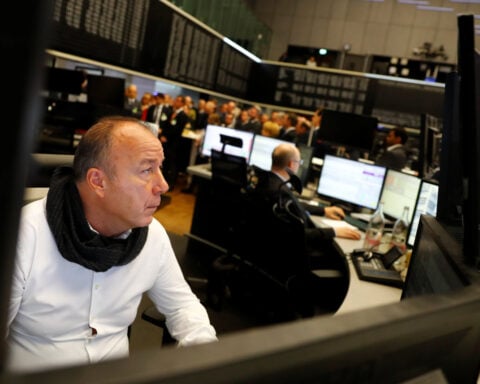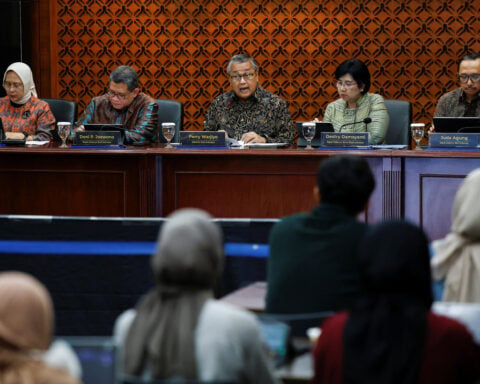By Ana Mano
SAO PAULO (Reuters) -The world's top chicken exporter Brazil has voluntarily halted poultry exports to some countries after a case of Newcastle disease was detected in the state of Rio Grande do Sul, its agriculture ministry said on Friday.
The move comes as local authorities try to contain the viral disease after around 7,000 birds died on a chicken farm in Brazil's southernmost state. The flock's remaining 7,000 birds were culled to comply with health protocols, according to meat lobby group ABPA.
From a sample of 12 birds from the flock, government investigators found at least one positive case of Newcastle, ABPA, which represents exporters such as JBS and BRF, said.

Newcastle causes respiratory problems in birds and sometimes leads to death.
The temporary export restrictions could affect 50,000 to 60,000 metric tons of Brazilian poultry exports "in the worst-case scenario," ABPA said. Brazil produces 1.2 million tons and exports 430,000 tons of poultry products, on average, per month.
The restrictions range, depending on the destination country, from all Brazilian poultry exports to products only from Rio Grande do Sul, the agriculture ministry said.
The restrictions affect sales to 44 nations including China, Argentina, the European Union, Japan and Saudi Arabia, the ministry said.
Rio Grande do Sul accounts for 15% of Brazilian poultry production and exports, according to ABPA.
The agriculture ministry declared an animal health emergency in Rio Grande do Sul due to the Newcastle case.
Notification by countries of Newcastle cases is mandatory under guidelines from the World Organisation for Animal Health.
The last previous confirmed cases of Newcastle in Brazil occurred in 2006 in subsistence birds in the states of Amazonas, Mato Grosso and Rio Grande do Sul, according to the ministry. Subsistence birds meet a family's need for food and are not kept for trade.
(Reporting by Ana Mano, Luana Maria Benedito and Leticia Fucuchima; Editing by Lisa Shumaker, Rod Nickel and Aurora Ellis)

 Germany's economy shrank for the second consecutive year in 2024
Germany's economy shrank for the second consecutive year in 2024
 Italy, Albania, UAE sign deal for energy subsea interconnection
Italy, Albania, UAE sign deal for energy subsea interconnection
 European shares advance as bond yields ease; soft inflation powers UK stocks
European shares advance as bond yields ease; soft inflation powers UK stocks
 Bayern Munich signs US youngster Bajung Darboe from LAFC
Bayern Munich signs US youngster Bajung Darboe from LAFC
 Novak Djokovic breaks a tie with Roger Federer for the most Grand Slam matches in tennis history
Novak Djokovic breaks a tie with Roger Federer for the most Grand Slam matches in tennis history
 China's RedNote: what you need to know about the app TikTok users are flocking to
China's RedNote: what you need to know about the app TikTok users are flocking to
